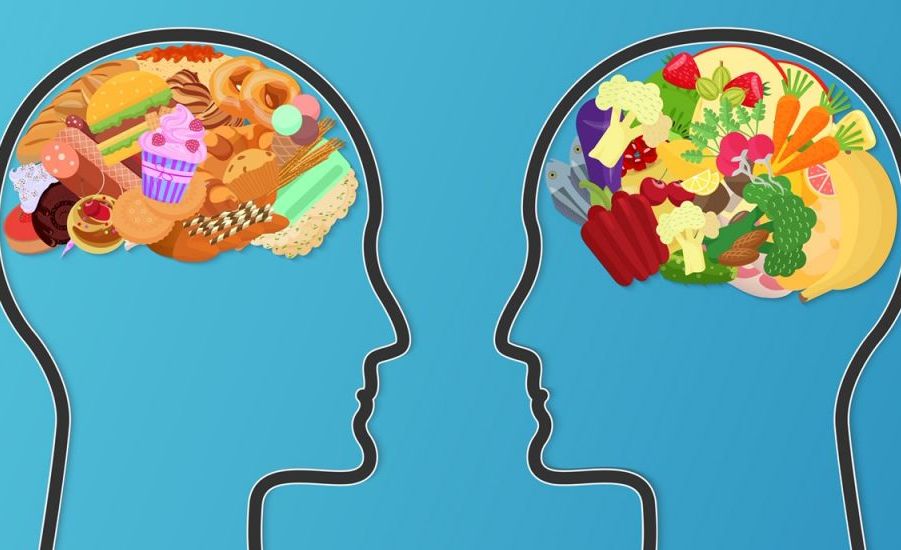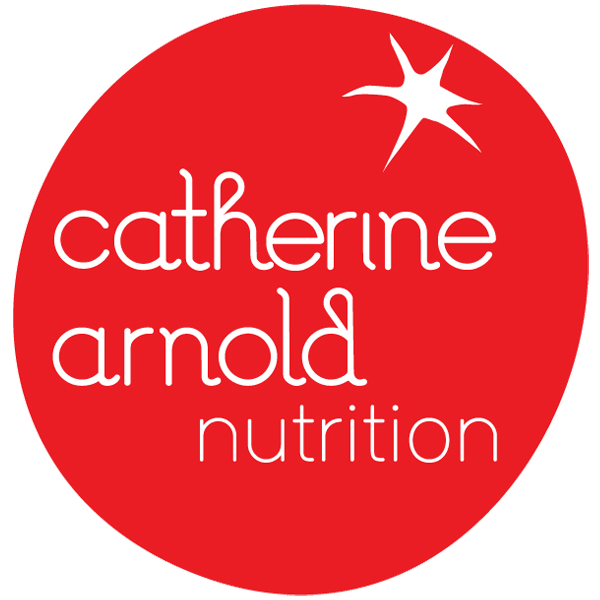
Nutrition plays a big role in our mood and general wellbeing. Unfortunately a healthy diet can be difficult to maintain if you aren’t feeling great, so it can be a vicious cycle. Eating badly exacerbates how you feel, so you eat things that taste nice to make you feel better, but that actually makes you feel even worse. It is possible to make a real improvement by making some very simple changes.
The first steps I would take to help my clients support their mood is to balance blood sugar. What we eat and when we eat it, impacts your blood sugar balance which affects mood and energy levels. If you don’t keep your body fuelled then your blood sugar dips which can impact your brain and mood. Sugary foods, alcohol, caffeine and refined carbohydrates all disrupt blood sugar balance. We know that sugar influences our mood, anyone with kids can testify the change in behaviour once they have had some sugar! Research has linked high sugar intake to increased risk of depression and schizophrenia, it can also increase anxiety levels.
To keep your blood sugar balanced, try to include protein and fat with your meals alongside carbohydrate. Eggs, fish (especially oily fish as high in omega 3 fats), beans, chicken, grassfed meat, tofu, tempeh, nuts and seeds are all great sources of protein and it’s a good idea to include one (or more if vegetarian protein) of these in a meal. Don’t skip breakfast! This is an important meal and helps keep your blood sugar balanced throughout the day. There are plenty of protein rich breakfast ideas on my website. This will not only support your mood but improve your energy too.
If you have problems with your gut health, this could also be impacting your mood and wellbeing.
Our gut is home to an ecosystem of bacteria, called the microbiome, which is influenced by the food we eat. Alcohol, junk food and sugar can reduce levels of beneficial bacteria and cause bad bacteria to proliferate. This imbalance in gut bacteria is called dysbiosis. Medications, stress and traumatic events can also disrupt the microbiome and cause dysbiosis too. Symptoms such as bloating, constipation, flatulence and loose stools can all be signs that you have dysbiosis. This imbalance can impair our ability to breakdown foods and absorb nutrients, impact our immune function and also affect our mental health.
The bacteria in our gut communicates with the brain via the vagus nerve. An information superhighway which sends signals back and forth. Gut bacteria influence emotions by modulating and generating signals the gut sends to the brain which can reinforce or prolong an emotional state. Research has linked depression and other mental health conditions to gut bacteria, so learning how to nurture and optimise your microbiome is important.
If you are not breaking your food down properly, you may not be absorbing the nutrients required to support healthy levels of neurotransmitters, which influence our mood. In addition, gut bacteria produce and consume a large number of our neurotransmitters and as such play a role in their levels.
Around 95% of our ‘feel good’ neurotransmitter, serotonin, is made in the gut. Serotonin is essential for normal intestinal function, such as moving food through our digestive tract. But it also plays a critical role in our sleep, appetite, pain sensitivity, mood and overall wellbeing. The cells that produce serotonin are influenced by what we eat, by chemicals released by certain gut bacteria and by signals the brain sends informing them about our mental status. Gut bacteria are also involved in the production of other neurotransmitters such as dopamine, norepinephrine, acetylcholine and GABA, critical for mood, anxiety, concentration, reward and motivation.
Eating a wide variety of vegetables is very beneficial for our gut bacteria. Studies have shown a high consumption of vegetables is associated with lower risk of depression and anxiety. As well as supporting our gut bacteria, the wide array of phytonutrients available in brightly coloured fruit and vegetables include anti-inflammatory compounds which are supportive of optimal brain health. One group of phytochemicals are flavonoids (also found in green tea and wine!) which are considered to have neuro-protective abilities.
Ensuring you are consuming adequate healthy fat is crucial for brain function because 60% of the brain is made from fat! 20% of these fats are omega 3 fats which are found in oily fish, grass fed meat and free range eggs. It’s important that our diets have adequate omega 3 fats – aim for 3 portions of oily fish a week and consider taking a fish oil too, or if you are vegetarian or vegan, then an algae oil as you may not be able to get enough from plant sources.
As well as looking at your diet, it’s worth trying to reduce stress as much as possible to support your mental health. Stress can reduce your immune function and exacerbate gut problems. It can disrupt your gut bacteria and in some people, chronic stress increases the risk of depression and anxiety. I have written an article about stress here which has some suggestions on what to do. This is especially important right now, as we are living through an unusually stressful time.
There are ways to understand more about your gut health and your underlying stress levels when you work with a nutritional therapist. My clients will often do a private stool test to learn more about their microbiome so we can work to optimise it, or do a stress test to understand more about their cortisol (stress hormone) levels or even a neurotransmitter test so we can learn more about what is going on and work to create some balance.
If you need support with your mental health, here are some options available in the UK:
- If you’re in a crisis and feel suicidal, can call 999 or visit A&E.
- Improving access to psychological services (IAPT)
- IAPT is free and you can self refer so no need to visit your GP. You can google your local area and IAPT or visit https://www.nhs.uk/service-search/find-a-psychological-therapies-service/
- Calm harm app is good for support with self harming https://calmharm.co.uk/https://calmharm.co.uk/ and stay alive app for suicidal thoughts https://www.prevent-suicide.org.uk/find-help-now/stay-alive-app/
- You can text SHOUT 85258 anytime if you need urgent mental health support.
- For bereavement, Cruse is an amazing free facility where you can get support: https://www.cruse.org.uk/
- https://www.samaritans.org/ Call free on 116123 if you need to talk to someone now.
- https://www.mind.org.uk/ has lots of information to support you too.
- Or call you GP surgery for support too.



